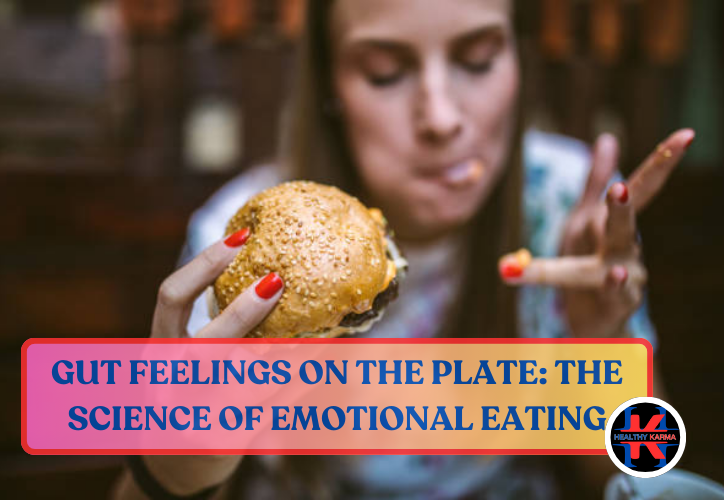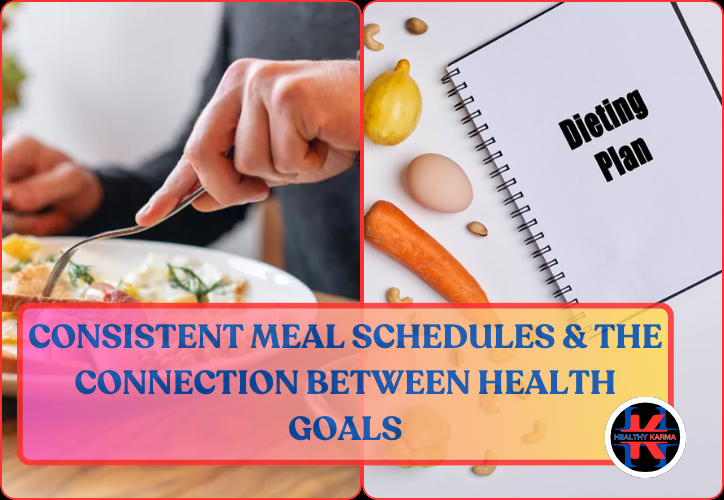

THE ULTIMATE ROADMAP TO RESISTING FOOD TEMPTATIONS
In the past, have you ever counted how many times have you gone on a weight loss diet and given it up in guilt after you found yourself sneaking up on your favourite foods without you ever realizing that you’re on a diet? When at a party, whenever your host or your friends insist that you have your favourite food, how many times have you given in on your cravings? Welcome to the club. You are not alone.
Food cravings are a familiar problem for most people, on a diet plan, making it more challenging to maintain a healthy diet and achieve the desired results. Sometimes, the cravings become so strong that it’s difficult overnight to overcome them and ultimately the diet plan is chucked out of the window.
Do you feel like eating your favourite food out of the blue? Food temptations or cravings for certain types of foods have a unique way of steering us toward the cookie jar in the kitchen cabinet or the nearest fast-food joint, on the way to work, often leaving us stumped why we can’t resist certain food temptations. This is what is known as emotional eating where our emotions often overwhelm our food choices.
These tempting urges for specific foods, particularly those tingle our taste buds, are more than just fleeting desires – they are a set of complex reactions motivated by a range of factors, including our subconscious emotions. As we navigate through a maze abundant with culinary delights all over the world, it’s imperative to unravel the intricate complex link between our emotions and our dietary choices.
Why do we crave the foods we crave?
Food temptations or cravings are basically caused due to the eating habits that have been developed over time. It is, however, possible to overcome food temptations and maintain a healthy lifestyle with a few simple modifications in the current lifestyle habits. Here are some suggestions for dealing with food cravings that help to understand the connection between the mind and the lifestyle habit patterns that have been developed over time:
Why do you crave the foods that you crave? Is it because of the texture? Is it the taste that tingles your taste buds? Understanding the source of your cravings is essential because the solution lies in the cravings itself. Why are you getting those cravings at that point in time? Do you get cravings for certain types of foods more in the morning or at night?
Do you crave your favourite brand of cookies/ice cream because you’re tired or stressed? Are you bored of the foods that you’re currently eating in your diet and gravitating towards junk food as an alternative? If you can find the answer to these and any other questions, you can find healthier ways to deal with your cravings thereby creating a healthier relationship with food.
At an initial cursory glance, food cravings might appear to be related to hunger, but the real cause may be very different. Hunger is a basic physiological response that signals to us that we need to eat to meet our body’s energy requirements. It functions as the stomach’s way of telling us that we should eat. On the contrary, emotional cravings for food often include specific types of foods, typically those with a rich flavour and texture, that go beyond the body’s needs for energy.
Cravings for types of foods, usually with strong sensory appeals, such as sugary treats, salty munchies, and our favourite foods, can be described as strong cravings. Cravings, unlike genuine hunger, are not primarily driven by the body’s desire for fuel. Rather, a complex connection of emotional, psychological, and neurological factors affects them.
Identifying these food temptations goes a long way in creating a set of healthy lifestyle habits sustainable for the long term. It may so happen that the root cause of the cravings lies in the subconscious that is related to an incident in the past.
Therefore, it is important to speak to a professional therapist or a specialist who deals with food cravings in order to understand the hidden connection that food has with your mind and your mental state that has a connection with some incident that has occurred during childhood and has impacted your eating habits that have created a negative relationship with food, thereby impacting your lifestyle in a negative manner.
related: you may also like

gut feelings on the plate: the guide to emotional eating

consistent meal schedules and the connection between health goals
The mind is very sly and has its own unique ways of getting its way, particularly as far as food is concerned. Sometimes, the body sends the signals that it has a requirement of water, but the mind makes us believe that the body is hungry, and we end up eating our favourite junk food instead of drinking water.
Excessively high levels of thirst can often be mistaken for hunger. This is due to the eating habits that have been developed over time. To check whether you’re hungry or thirsty, try drinking a glass or two of water waiting 10-15 minutes before every meal even if you are not actually thirsty. See if you feel full after eating. Do this a couple of times and measure the results in a notebook or a food diary and establish a pattern. If the craving persists every time, and you eat the same quantity of food, then you may be truly hungry at that point in time.
Besides the habit of drinking a glass of water 10-15 minutes before and after a meal, not only helps manage hunger levels in a better manner, but it also helps with a better digestive process, thereby helping with weight management in the sustainable long term.

breaking through from weight loss plateaus

Transform your body: weight loss success for beginners
Make sure to include all the necessary food groups necessary for the body’s nutrition in every meal to help keep you feeling full and satisfied. Eating a balanced meal can also help regulate your blood sugar levels, and blood pressure, which can help reduce the body’s cravings for sugar. Cravings occur because the body in unable to get the required nutrients at the time of the meal.
Move that ass around as much as possible. Feeling hungry at a particular point during the day? Go and take a walk or phone a friend with whom you have not spoken for a long time. Diverting the mind from the craving and breaking the communication with the body often helps.
It is just a matter of habits and training the mind in that manner. Besides, regular exercise has been shown to reduce cravings by releasing endorphins, which can boost your mood and suppress your appetite in the long run.
Having healthy options, like fruits or nuts, readily available on hand can help you avoid reaching for unhealthy options when cravings strike. Make it a point to stock seasonal fruits in your kitchen as they are an excellent source of nutrition for the body depending upon the weather conditions.
Studies on mental health point out that high levels of stress and anxiety can be a major trigger for food temptations, with or without our knowing it. Try practicing mindfulness, meditation, or deep breathing to help manage stress whether it is related to work or otherwise and reduce cravings. Do not be shy to seek professional help as sometimes cravings can be related to deep rooted emotional triggers related to the past also.
Studies on sleep have shown that lack of proper sleep to cause an increase in stress levels and also cravings for sugary or high-fat foods. Generally the body requires at least 7-8 hours of sound sleep each night in order to function properly. Try identifying your sleep patterns to help reduce cravings in the long term.
If there are certain foods or situations that trigger your food temptations, try to avoid them. For example, if you have the habit of picking up the soda can in front of the television set before or after dinner, replace the activity of watching TV in the evening or replace the unhealthy packaged snacks by keeping them out of the house or replacing them with healthier options like fruits or nuts.
Reach out to someone you love and trust when you’re struggling with emotional triggers. Sharing your feelings with your partner can provide relief from your emotions and help you feel understood. Additionally, consider joining support groups or seeking therapy to learn coping strategies and gain insights into managing emotional eating.
Remember, managing emotional food cravings is a journey that requires patience and self-compassion. It’s okay to have slip-ups, but the key is to learn from them and continue working toward healthier habits. By practicing mindfulness, adopting stress management techniques, making healthy substitutions, and building a strong support system, you can regain control over your eating habits and lead a more balanced and fulfilling life.
In conclusion, food tempatations can be a challenge, but they don’t have to control your eating habits. By understanding the source of your cravings, making healthy choices, and practicing stress-management techniques, you can overcome cravings and maintain a healthy diet. Remember, progress is a journey, not a destination, therefore be kind to yourself and your body as you move towards a healthy lifestyle.
you may also like:

the ultimate guide to healthy breakfast ideas

ultimate ways to stay slim & sustain it
Disclaimer:
This post may contain affiliate links which means if you click on a link and make a purchase, we may receive a small commission on our end at no additional cost to you. This helps us to continue providing value to our esteemed readers. Irrespective of the amount of commission, our goal is to recommend products or services that we genuinely believe will add value to our esteemed readers.